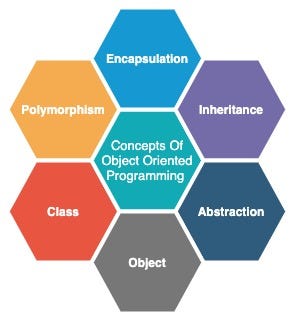A Beginner’s Guide to Object-Oriented Programming (OOP) Concepts

Object-Oriented Programming (OOP) is a programming paradigm that focuses on creating reusable and modular code. It has become one of the most popular programming styles in recent years due to its simplicity and flexibility. This article aims to provide a beginner’s guide to the core concepts of OOP.
Objects and Classes:
In OOP, everything is an object. Objects have attributes (also called properties) and methods (functions that perform an action on the object). A class is a blueprint for creating objects. It defines the properties and methods that an object of that class will have. Objects are instances of a class.
Encapsulation:
Encapsulation is the practice of hiding the internal details of an object from the outside world. It means that the object’s internal data can only be accessed through its methods. Encapsulation ensures that the object’s data is safe from accidental modification and also allows for better organization of the code.
Inheritance:
Inheritance is a mechanism by which one class can inherit properties and methods from another class. The class that inherits from another class is called a subclass or derived class, and the class that is inherited from is called the superclass or base class. Inheritance allows for code reuse and makes it easier to create and maintain code.
Polymorphism:
Polymorphism means “many forms.” In OOP, it refers to the ability of objects of different classes to be treated as if they were objects of the same class. This is achieved through inheritance, where a subclass can override or extend the methods of its superclass. Polymorphism makes code more flexible and adaptable to different situations.
Abstraction:
Abstraction is the process of reducing complex systems to simpler components. In OOP, abstraction is achieved through abstract classes and interfaces. Abstract classes define properties and methods that a subclass must implement, while interfaces define a set of methods that a class must implement. Abstraction allows for code to be written at a higher level of abstraction, making it easier to understand and maintain.
In conclusion, OOP is a powerful programming paradigm that has become essential in modern software development. It is based on the principles of objects, classes, encapsulation, inheritance, polymorphism, and abstraction. By understanding these concepts, beginner programmers can create efficient and flexible code that is easy to maintain and reuse.